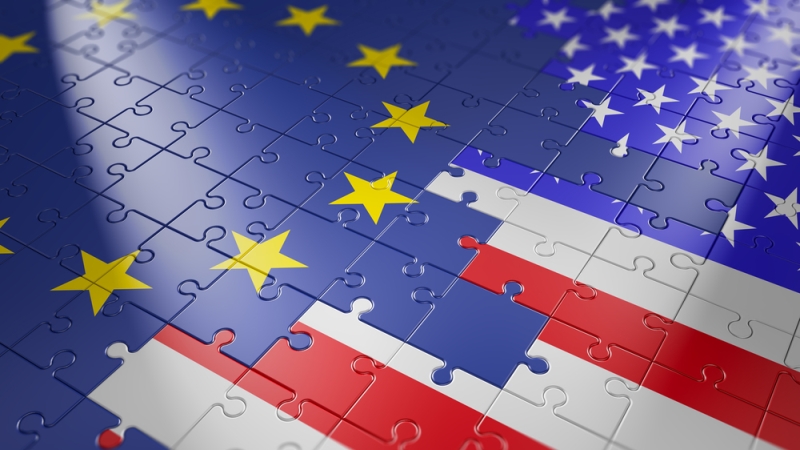
The U.S.-EU Trade and Technology Council (TTC) held its fourth ministerial meeting in Luleå, Sweden this week, unveiling key initiatives for the advancement of artificial intelligence technologies through the countries’ partnership.
U.S. Co-Chairs Secretary of State Antony Blinken, Secretary of Commerce Gina Raimondo, and United States Trade Representative Katherine Tai met with a range of U.S. and EU stakeholders on May 30 and 31 to further enhance Transatlantic cooperation on AI.
The group announced several advancements of its joint AI Roadmap including launching three expert groups to focus on AI terminology and taxonomy, standards and tools for trustworthy AI and risk management, and monitoring and measuring AI risks.
The countries’ joint roadmap on the emerging technology was first announced during the December 2022 TTC meeting held outside of Washington, D.C. The council said the roadmap “aims to advance shared terminologies and taxonomies, but also to inform our approaches to AI risk management and trustworthy AI on both sides of the Atlantic.”
The council also announced this week that the joint AI Roadmap will include a special emphasis on the opportunities and risks of generative AI, and “will complement the G7 Hiroshima process.”
The G7 Hiroshima process is an effort announced by world leaders last week at the G7 Summit in Japan to set common rules for governing artificial intelligence.
The TTC announced 17 other technology initiatives at the meeting, including collaboration to maximize clean energy development, addressing policies affecting the global semiconductor supply chain, among several others.
“Our nearly 800 million citizens share common values and principles that directly support the largest economic relationship in the world,” the White House said. “The changing international environment requires joint collaboration to meet the opportunities and challenges of the 21st century, and the TTC is a key mechanism to deliver economic growth and prosperity for our citizens.”
It continued, “We have enhanced collaboration to address non-market policies, practices, and economic coercion, while emphasizing our enduring commitment to democratic governance, respect for human rights, and the rule of law.”
